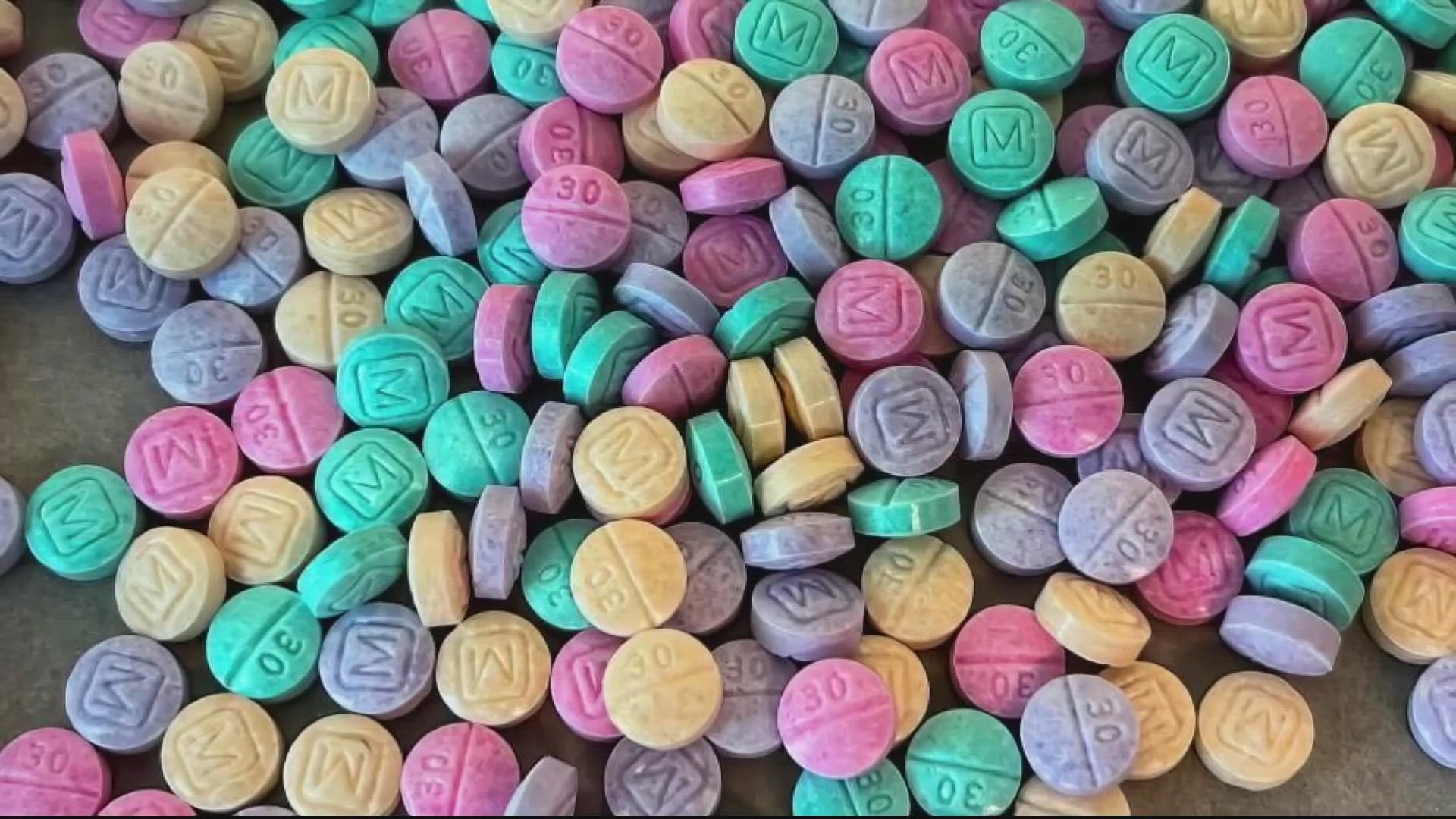WASHINGTON — Recent cases of possible overdoses in schools across the DMV highlight the importance of spreading more awareness about the misuse of drugs.
On top of tracking down drug traffickers, the Drug Enforcement Administration’s (DEA) Washington Division has also been partnering with school districts to teach the kids the dangers of opioid misuse, including the highly potent drug fentanyl.
“We are in constant communication with a lot of different school systems and brought the message of the high threat of fentanyl in the schools,” Special Agent in Charge of DEA’s Washington Division Jarod Forget told WUSA9.
The DEA talked to students at a school in Prince William County this month, where law enforcement has sent warnings to parents following several drug overdoses.
Agents also held a recent summit for families in the DMV to learn more about fentanyl.
In 2022, agents seized more than 8.3 million potentially deadly doses of fentanyl in the District, Maryland and Virginia. They confiscated nearly 160,000 fake pills with fentanyl and over 250 pounds of fentanyl powder.
Officials said the total last year surpassed the amount in 2021.
Although it’s unclear how many of the drugs found involved juveniles, the number of youth overdoses across the region has been concerning.
Montgomery County officials recently announced there were 48 overdoses among people 21 or younger in 2022, 11 of which were fatal. Compared to 2021, there were 27 overdoses and five fatalities.
Police are investigating a suspected overdose at Kennedy High School last week. Since the start of the school year, MCPS says officials used the opioid overdose reversal drug Narcan at least 11 times.
On Tuesday, Arlington Police also began investigating a possible drug overdose at Wakefield High School after a student was found unconscious in a bathroom. School had to be dismissed early.
Another teenager overdosed inside Eastern View High School in Culpeper.
“These fake pills are out in the community and people are dying,” Forget said. “It's easier to make, cheaper to make and more marketable for the cartels, and it’s highly addictive.”
Drug administration officials are also sending a warning for parents to be on the lookout. Drug cartels have capitalized on social media to market to children.
Using coded language and emojis, kids can obtain dangerous amounts of fentanyl without realizing it.
“The cartels are using online platforms such as Snapchat, Instagram, and TikTok to market these fake pills to young people that are unknowingly purchasing these pills,” Forget added. “They're trying to drive the addiction. they're trying to create a new customer base.”
The DEA is pushing its latest campaign called ‘One Pill Can Kill.’
For the second year, the Washington Division was selected to participate in the national initiative Operation Engage. The DEA says it’s “a comprehensive approach tackling the cycle of violence and addiction generated by the link between drug cartels, violent gangs, and the rising problem of illicit drug use in United States (U.S.) cities.”
This year the program is in D.C. and Prince George’s County.

